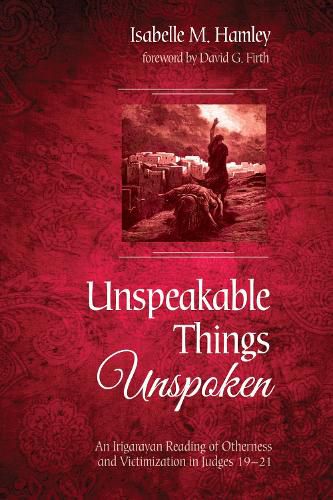Readings Newsletter
Become a Readings Member to make your shopping experience even easier.
Sign in or sign up for free!
You’re not far away from qualifying for FREE standard shipping within Australia
You’ve qualified for FREE standard shipping within Australia
The cart is loading…






This title is printed to order. This book may have been self-published. If so, we cannot guarantee the quality of the content. In the main most books will have gone through the editing process however some may not. We therefore suggest that you be aware of this before ordering this book. If in doubt check either the author or publisher’s details as we are unable to accept any returns unless they are faulty. Please contact us if you have any questions.
The story of the raped and murdered woman of Judges 19 and the civil war and mass marriage that ensue in chapters 20-21 are hardly favorite tales of the Hebrew Bible. The chapters have often been dismissed as little more than an anachronistic epilogue, an awkward amalgamation of earlier stories or a text of terror, proof of patriarchal oppression. This book argues that, far from being a clumsy collage, Judges 19-21 is a carefully narrated tale that chronicles the descent of a nation into extreme individualism and fragmentation. In dialogue with continental philosopher Luce Irigaray, it will uncover the dynamics of identity formation and how differential constructions of identity of the One and the Other yield patterns of victimization and justification of violence. This literary-philosophical reading will bring out silences and missed possibilities for the subjectivity of women, whilst also shedding light on the victimization of men within the logic of totalitarian identity constructions. The end of Judges therefore offers a theological conclusion to the book as a whole and opens up avenues for thought on theological anthropology, understandings of identity and gender, and a theological commentary on violence.
$9.00 standard shipping within Australia
FREE standard shipping within Australia for orders over $100.00
Express & International shipping calculated at checkout
This title is printed to order. This book may have been self-published. If so, we cannot guarantee the quality of the content. In the main most books will have gone through the editing process however some may not. We therefore suggest that you be aware of this before ordering this book. If in doubt check either the author or publisher’s details as we are unable to accept any returns unless they are faulty. Please contact us if you have any questions.
The story of the raped and murdered woman of Judges 19 and the civil war and mass marriage that ensue in chapters 20-21 are hardly favorite tales of the Hebrew Bible. The chapters have often been dismissed as little more than an anachronistic epilogue, an awkward amalgamation of earlier stories or a text of terror, proof of patriarchal oppression. This book argues that, far from being a clumsy collage, Judges 19-21 is a carefully narrated tale that chronicles the descent of a nation into extreme individualism and fragmentation. In dialogue with continental philosopher Luce Irigaray, it will uncover the dynamics of identity formation and how differential constructions of identity of the One and the Other yield patterns of victimization and justification of violence. This literary-philosophical reading will bring out silences and missed possibilities for the subjectivity of women, whilst also shedding light on the victimization of men within the logic of totalitarian identity constructions. The end of Judges therefore offers a theological conclusion to the book as a whole and opens up avenues for thought on theological anthropology, understandings of identity and gender, and a theological commentary on violence.